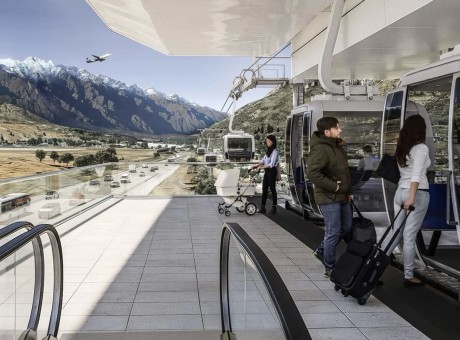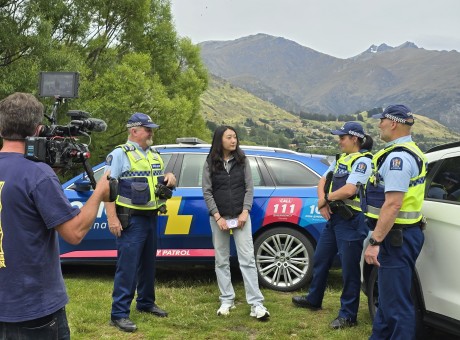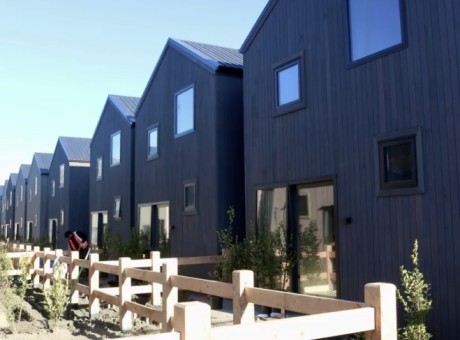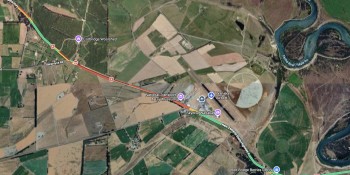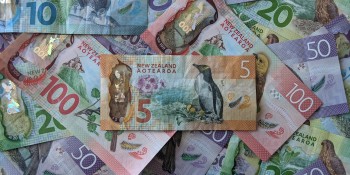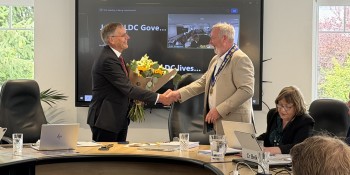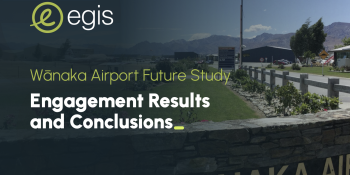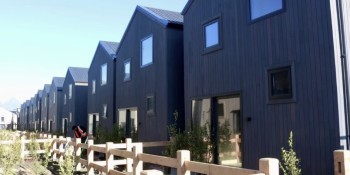New projects fixing Wanaka's waste
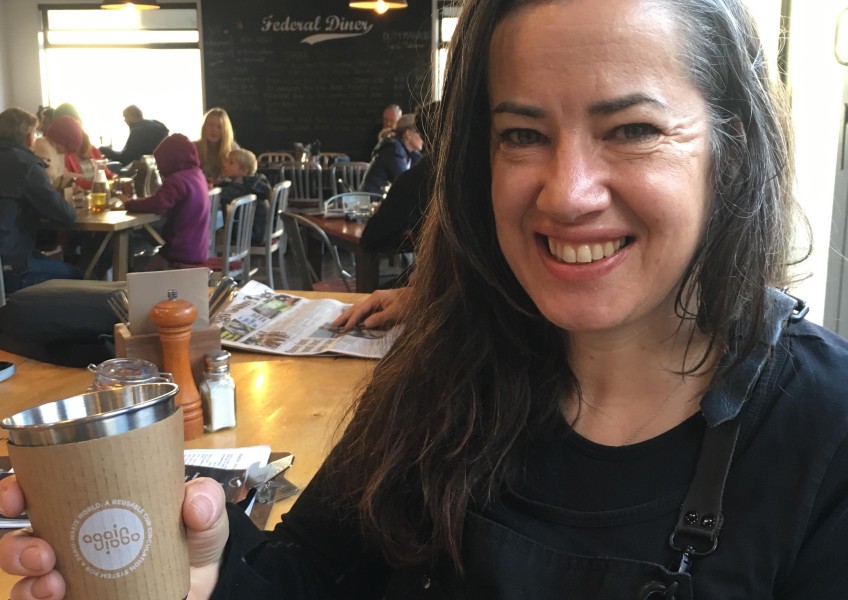
We all know the deal with single-use cups by now. The numbers (an estimated 295 million going to landfill yearly in Aotearoa) are hard to forget, and the Keep Cup is on the rise. The trouble is, we’re still human. We leave them in the car, or at home, and our efforts are thwarted by our own forgetfulness and busy lives.
This was noted by a group of Wanaka cafe owners, including Federal Diner owner Brona Parsons. With the help of the QLDC Zero Waste Initiative Fund, Plastic Free Wanaka and environmental organisation ONE New Zealand, they are rolling out a cup lending system. The initial trial is planned for the end of October, calling on the services of Wellington not-for-profit Again Again. According to Parsons, this is the way the world is going, and we need to get on board.

The Again Again coffee cup
“I believe people have it in their hearts to bring their own cups, they just forget. And then there’s the ones who don’t even have it on their radar, and you’ve just got to put it in their face.” So how does the cup lending work? Basically, you come in, you pay for your coffee, and pay $3 for your stainless steel cup. The next time you come in, you either use your cup again, or give it back to the cafe and get your $3 back.
Parsons says they have several cafes on board already, after an initial workshop with hospitality workers at last October’s ONE environmental summit. “The aim is to have 12 cafes initially signed up for the roll-out. The bigger vision, of course, is to have a single-use-cup-free Wanaka by 2022.”
She says the group, supported by Sophie Ward from Plastic Free Wanaka, will be using most of the money from the fund on education to get the community on board. “We’ll be doing posters, Facebook marketing, cards for cafe owners and workers - approaching it from the community side and urging people to ask their cafes if they’re going to take this up.”
This project is one of several awarded funding from the Zero Waste Initiative fund, which is focussed on supporting community efforts and has allocated almost $50,000. Other recipients include Dishrupt, a Sustainable Queenstown project which provides reusable dishes and cups for events. Co-founder Esther Whitehead is currently on an environmental leadership course with Al Gore in Brisbane, of which you can read her Crux account here. Funding has also been granted for education on waste-free menstruation, workshops to minimise surplus fruit wastage, and for developing songs and community performances around waste minimisation.
For Parsons and the other hospitality leaders, the cup reuse scheme is a baby step on the path towards a grander waste-free vision. In discussions at the ONE summit hospitality workshop, it was decided the major issues to be tackled were single-use cups, organic waste and chemical cleaning products.
According to Parsons, it’s important for people in an industry (like hospitality) to form a collective to initiate change. “You have more sway behind you as a team, as an industry. Together, you can go to the source and say, “We don’t want this anymore, this is how we would like to work.” Demanding plastic free deliveries from suppliers, for example, is an area where she says a collective could have more strength.
While the group are focusing their initial efforts with the cup lending scheme on getting locals on board, the plan is to eventually roll it out to tourists, as well. “We want the tourists to be involved, too, but we do need to be cautious about the leakage (them taking the cups away with them). Down the track we’ll approach the tourism operators and motels, to come up with a scheme where they could collect the cups from tourists, give them back their deposit and then bring the cups back to us.”

Kate Meads - nappies and sanitary products make up to 14% of all household waste.
Coffee cups may be a well-discussed waste stream, but Kate Meads from Waste Free with Kate is focussing on one that gets a little less airtime. She gives workshops on waste-free periods, and says that with nappies and sanitary items making up 8-14% of household waste, it’s an important issue to target. With her Zero Waste Initiative funding, Meads will be giving talks at Mt Aspiring High and Wakatipu High on period poverty and waste-free menstruation.
“I make it as funny as possible - people see menstrual stuff as being all gross, but at the end of the day, every woman uses single-use products for 40 odd years, and they’re all going to landfill,” says Meads, who envisions a tampon and pad-free future.
“A reusable cup will last a woman ten years, diverting that many years worth of waste. It’s got good social benefits as well because of the financial savings - there’s a real issue with young girls not being able to afford menstrual products, and not going to school because of it.”
Meads has spent the last ten years getting people talking and laughing to remove the stigma around reusable products. “Washing has become weird but it’s not - it’s not a new problem and there are reusable options!”
She leaves each school with a resource pack with samples (including period undies, reusable pads and cups) for the girls to look at, and videos on how they work. And the uptake? “Well, at one we did at Timaru Girls last year there was initially a bit of skepticism. We had 50 cups to give away and at the end, I asked who wanted one. They all did, so we ended up with a menstrual cup scramble!”

The Wanaka Autumn Apple Drive
Meanwhile, Sarah Allen, behind the Autumn Apple Drive, says their funding will allow the event to offer next year’s workshop for free or an optional koha. “In Autumn in Central Otago, with such seasonal abundance, there is so much produce that goes to waste. There’s more than people know what to do with, so it’s about connecting and sharing that produce, and the tools and knowledge. It’s really about getting people together as well, in a relaxed, community environment,”
People can come and learn how to pickle, preserve and make juice from extra produce, and Allen says that the funding will allow them to look into options for extending the Drive over to Queenstown. “We also reuse hundreds of glass bottles and jars - although it’s one of the most recyclable things, it’s still way better to reuse,” she says.
The scale of the climate crisis we’re facing can seem daunting, but to quote Esther Whitehead, we each have a circle of influence, and we can’t do everything, but we can be courageous and take a step to being a climate leader. In this case, the faster we support community initiatives like these, the greater the momentum for change.
Main Image: Brona Parsons of Federal Diner in Wanaka.





